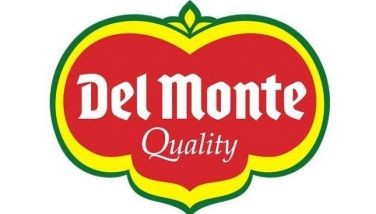Newsjacking:Capitalizing on the moment
The double-gold victory of Filipino Olympian Carlos Yulo in the recently concluded Paris Olympics has hogged the national headline for days – bring honor to the country that remains hungry for global recognition in the field of sports.
But his victory has also raised a cacophony of issues from some sectors of the public – particularly how some brands have associated themselves with the victorious gymnast – with some praising the brands for showering him with rewards while a few raising eyebrows arguing these brands maybe a getting a “free ride” for their products and services. One observer even warned to “separate the sincere and celebration from the predatory messages.”
Truth to be told, the art of injecting brands and brand messages into a trending news story to generate attention has become a staple in the modern marketing playbook. It is called newsjacking and there is a vast array of literature discussing its use in brand management.
Coined by David Meerman Scott, newsjacking refers to the practice of leveraging trending news stories to generate media coverage and increase brand visibility. It is a high-stakes gamble that can yield tremendous rewards for the brands that employ it especially when executed skillfully. However, this tactic can also backfire spectacularly if and when mishandled. Indeed, while this strategy can be a powerful marketing tool, it also comes with significant risks and ethical considerations.
There are several advantages to newsjacking:
Heightened visibility: By aligning with trending news, issues and topics, brands can further corner a larger share of the consumers to gain additional and expanded exposure that may be more costly when done during normal marketing cycles.
Improved relevance: Brands may be perceived as “current” and in tune with contemporary events, which promotes higher degree of relevance to their target consumers.
Cost-effective marketing: Leveraging hottest stories of the day can be cost-effective to expand publicity without huge marketing and PR budgets.
Expanded engagement and virality: When done right, newsjacking can boost increased social media engagement and potentially result in a viral content which may increase sales.
Positioning as thought leaders: Brands that successfully newsjack can position themselves as thought leaders by offering expert commentary on trending issues.
Indeed, from the outset, newsjacking is a clever strategy. When brands align with a relevant and timely event, marketers are rewarded with increase product visibility; increase engagement, and can potentially influence public opinion. When intelligently and creatively implemented, this initiative can generate a general sense of relevance and authenticity, fostering a deeper connection with target audiences and stakeholders.
We remember how, during the COVID-19 pandemic, many brands successfully “newsjacked” by developing and offering relevant products or services. Surely, we remember we were bombarded with messages from disinfectant brands emphasizing their “germ-killing properties,” while online platforms and IT systems promoted the virtues of remote work solutions and technologies. Truly, these efforts did not only help these brands stay top-of-mind but also positioned them as empathetic and responsive to the consumers’ needs.
But, there is a thin line between clever opportunism and blatant exploitation. And unfortunately, oftentimes, this line is blurred or is mischievously ignored. When newsjacking goes wrong, and there have been cases when it was wrong, it can damage a brand’s reputation irreparably. One of the most common accusations to brands that use newsjacking is insensitivity especially when they try to capitalize on a tragedy or crisis. For example, a clothing brand that attempts to leverage a natural disaster by offering discounts on emergency supplies would be seen as highly insensitive and would likely face severe backlash especially from vigilant consumers.
Another pitfall is its potential to mislead the public by providing false information. In the rush to capitalize on a trending story, which is a staple in a “hype economy,” brands may unknowingly spread misinformation or create misleading narratives which in turn erode trust and damage to the brand’s credibility.
Arguably, newsjacking carries significant risks, particularly when executed poorly or insensitively. Some disadvantages to newsjacking are as follows:
Backlash and negative publicity: When brands misjudge the tone, sensitivity, cultural nuances, and practices even relevance of a news story, a public backlash can ensue and may cause damage to a brand’s reputation.
Ethical concerns: Exploiting sensitive or tragic events for commercial gain can be seen as unethical and opportunistic.
Dilution of brand message: Over-reliance on newsjacking can dilute a brand’s core message and identity, making it seem reactive rather than proactive.
Short-lived impact: The buzz generated by newsjacking is often short-lived, requiring constant vigilance and effort to maintain momentum.
Legal risks: Unauthorized use of copyrighted material or misrepresentation can lead to legal issues.
The Philippines, with its active social media landscape and penchant for drama, is a fertile ground for newsjacking. Unfortunately, the practice is often abused, with many brands resorting to sensationalism and opportunism to gain attention. We can recall that during the height of the COVID-19 pandemic, some businesses used misleading advertisements claiming to sell miracle cures or vaccines, taking advantage of people’s fear and desperation.
Principled marketers are, one in saying, that to avoid the pitfalls of newsjacking, brands must always promote and uphold authenticity and empathy. Brands are advised to carefully consider the nature of the news story and whether these hot-flash-stories align with the brand’s values and unique proposition. Once the brands decide to proceed and employ newsjacking, it must ensure the overall message should be genuine, respectful, and relevant to the consumers.
To navigate the complex landscape of newsjacking, brands should adhere to several best practices:
Relevance and timing: Ensure that the newsjacking effort is relevant to the brand and timely. The connection should be logical and enhance the overall message.
Sensitivity and respect: Approach sensitive topics with care and respect. Avoid exploiting tragedies or controversial issues purely for gain.
Authenticity: Be genuine in your approach. Ensure that any newsjacking effort aligns with the brand’s values and mission.
Value addition: Aim to add value to the conversation. Provide insightful commentary, solutions, or support rather than just riding the wave of publicity.
Transparency: Be transparent about your motives. If a newsjacking effort involves fundraising or support, clearly communicate how the contributions will be used.
Newsjacking is a powerful but double-edged sword. When executed with care, relevance, and authenticity, it can significantly boost a brand’s visibility and engagement. However, the risks of backlash, ethical missteps, and reputation damage are high.
Brands must, therefore, tread carefully, ensuring that their newsjacking efforts are not only timely and relevant but also respectful and value-adding. By adhering to best practices and maintaining a focus on ethical considerations and by understanding the potential risks and rewards, brands can navigate this complex landscape and build stronger connections with their audiences.
*Dr. Ron F. Jabal, APR, is the CEO of PAGEONE Group (www.pageonegroup.ph) (www.pageonegroup.ph) and the Founder and President of the Reputation Management Association of the Philippines (www.rmap.org.ph). Please correspond to [email protected] or [email protected]
- Latest
- Trending



























